Solidarity and humor in the coronavirus crisis
From friendly gestures or encouragement to helping others in need, the COVID-19 pandemic has shown us all how humanity can come together in times of crisis. This is how people around the world are showing solidarity.
PHOTO ESSAY SEE HERE
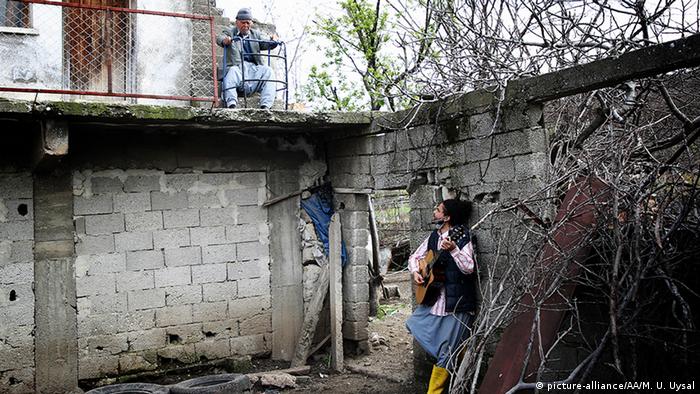
Brightening everyday life
Turkey has taken a different tack, imposing a curfew for people older than 65 or chronically ill — for their own protection. In the city of Mersin, 25-year-old Zulkif Cengiz has been playing a few tunes to pass the time for elderly people staying at home. In other countries, people sing in front of nursing homes, where residents are not allowed to have visitors to avoid infection.

Bear hunt
With schools and kindergartens closed for weeks, kids can get bored. To keep them amused, thousands of Belgians and Dutch have put cute teddy bears in their windows — it's bear-spotting time! Many bears are registered on interactive maps so parents can plan their family outings along the route that has the most teddy bears.

Positive approachMany Italians have been confined to their apartments for weeks. Emergency measures are to remain in place until at least mid-April. But they haven't lost heart. Posters with a colorful rainbow and the slogan: "Andra tutto bene" ("Everything will be fine") are hanging in windows and from balconies across the nation.

Hope on the horizon
Switzerland is also sending a message of solidarity. True to the motto "light is hope," bright messages beam from the Matterhorn, that highly symbolic Swiss mountain. But "#hope" alternates with "#stayathome" — the call to take the pandemic seriously and not go out.
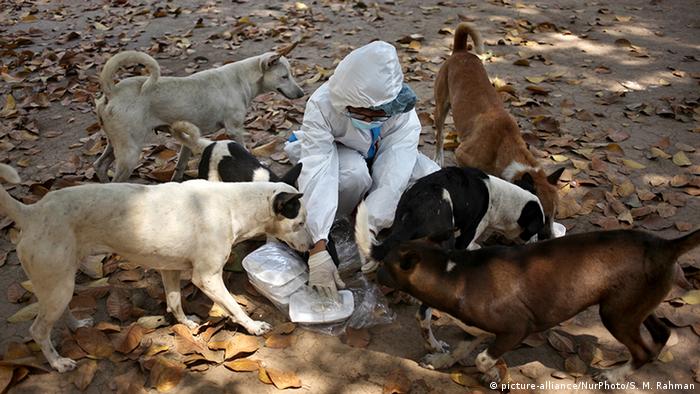
A volunteer dressed in protective gear feeds dogs in Dhaka
(picture-alliance/NurPhoto/S. M. Rahman)
Animals suffer, too
Public life has also come to a halt in Bangladesh. For animals that feed on garbage and leftover food, it is a problem when people no longer go out to eat. Volunteers in the capital, Dhaka, have taken to feeding stray dogs. In Germany, the Animal Welfare Association has warned that pigeons in the cities face starvation.
Pigeons at risk of starvation over coronavirus empty streets
A German animal rights group is warning that pigeons are struggling to find enough food amid the coronavirus lockdown. Empty city centers mean no leftovers for them to feast on and thousands may die.
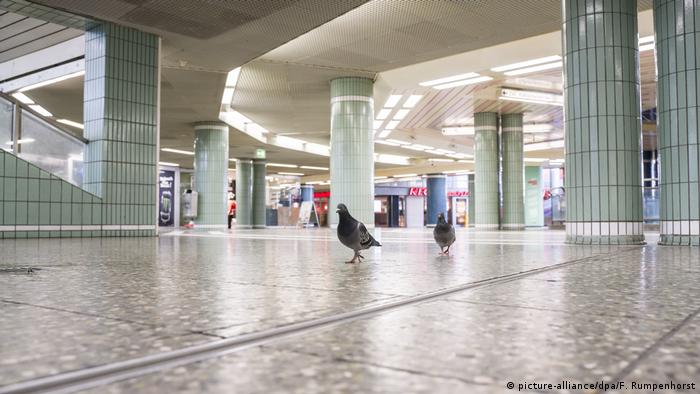
A German animal rights charity on Tuesday called for a campaign to save pigeons from starvation during the coronavirus pandemic.
The Bonn-based German Animal Welfare Association has warned that while the nationwide lockdown may have cleared the country's city centers of humans, thousands of pigeons are not self-isolating but are struggling to find enough food.
The birds, which normally feast on tiny leftovers dropped by residents leaving cafes and takeaways, are now going hungry.
Leonie Weltgen, the charity's specialist for species protection, told the Express newspaper that thousands of pigeons could die unnecessarily.
"Pigeons are very loyal to their local habitat. They will not leave the city centers and will starve to death if they are not provided with food soon," she told the paper.
Read more: Cologne Cathedral fights pooing pigeons with birds of prey
"Since it is the breeding season, many young animals will die in their nests if parents can no longer feed them."
Weltgen has called for feeding points to be set up to ensure the birds can continue to feed on corn, grain or seed. She says animal rights activists and other volunteers could distribute the food.
Weltgen acknowledged that several German cities have trouble controlling the pigeon population but said it was important not to let the birds die painfully.
"The ancestors of the city pigeons were once bred by humans, so we have a special responsibility for these animals."

DIY face masks
All over the world, volunteers are sewing simple face masks. They may not necessarily protect the wearer from infection, but if tied properly over mouth and nose, they can help to prevent the virus from spreading. The masks these Armenian-Syrian women produce are distributed among the poor in Aleppo.

Two men in Senegal paint a mural (Getty Images/AFP/Seyllou)
Fighting infection through art
Helping by doing what you do best definitely applies to the RBS Crew graffiti collective in Senegal. With their works of art on walls in Dakar, they are showing the population how they can stem the spread of the coronavirus. Sneezing into the crook of your arm is one of the important rules for protecting others.
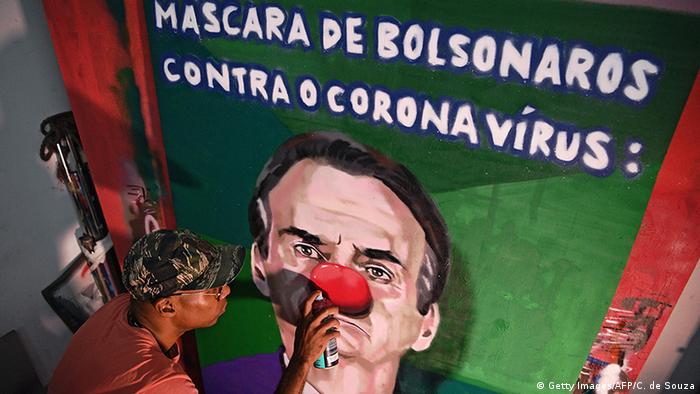
Clown or president?
Reactions to the crisis are also satirical. Aira Ocrespo is not the only one to criticize Brazilian President Jair Bolsonaro for his lax approach to the pandemic. As the artist sees it, a red clown nose is the only facial protection the president wears against the coronavirus.
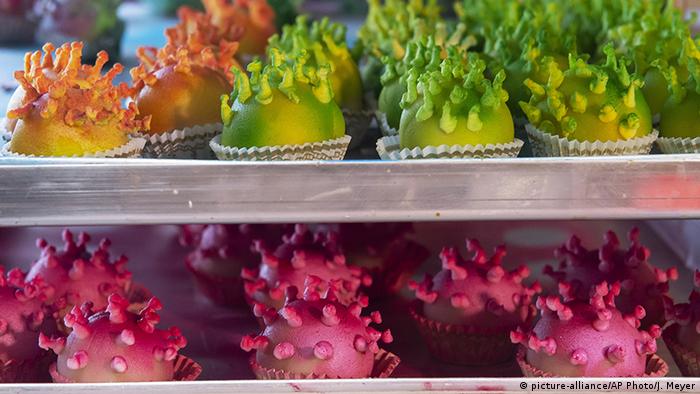
Sweet distraction
In Germany, coronavirus-related humor tends to be linked to food. Check out the "antibody" coronavirus chocolates, cakes shaped like rolls of toilet paper and chocolate Easter bunnies complete with face masks. But it wouldn't be Germany if there wasn't something to complain about: Critics argue that the merchandise is in bad taste.

A person in a T-Rex costume stands by the Washington Monument (picture-alliance/AP Photo/J. Martin)
A sense of humor
Reuben Ward sauntered around the US capital, Washington D.C., dressed up as a huge, scary Tyrannosaurus Rex. "It was an entertaining way to distract people a little from the coronavirus and cheer them up," the 29-year-old said. His message: Even if the situation is serious, you need to keep a sense of humor.

Toilet paper bonus
Toilet paper is in great demand in many countries. A restaurant in a town in the US state of Minnesota adds a roll of the precious product to every take-out order over $25 (€22). "When the customers get their order, you hear a genuine laugh and that's the best thing right now," the owner told FOX 9. It's also a clever marketing strategy.
No comments:
Post a Comment